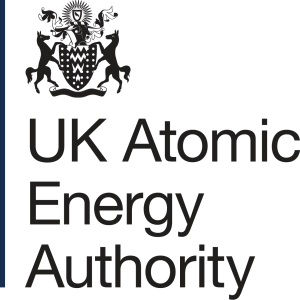After five years of being a qualified patent attorney, Ravi Srinivasan was made partner at J A Kemp. As a partner, Ravi must take responsibility for developing business relationships in order to improve and develop the service J A Kemp provide.
When I was exploring career options in my final year at university, J A Kemp was the only patent attorney firm that I went to for an interview. I was immediately ‘sold’ on the profession because of its unique mix of science, law and business skills.
The interviewing partners tested my technical reasoning powers under pressure with some tough questions, but it was clear from the outset that they wanted people with the drive and personal qualities to go on to win and retain clients for the firm.
What do I like most about the job?
Now that I have the freedoms and responsibilities that come with partnership, it is difficult to know where to start!
I have very much retained the technical interest that I had in my degree subject when I first entered the profession. I find it a great privilege that I have an opportunity to learn daily about new technology advances. I also enjoy the strong focus I have been able to develop on the commercial applications of science, particularly in the pharmaceutical field.
Overlaid on to the science is the massive and diverse field of worldwide patent law. At a large firm such as J A Kemp, we keep abreast of all significant developments in patent law, which varies from country to country.
Of course, as with any legal field, the legislation is just the starting point. Some of my most interesting work involves defending or opposing major pharmaceutical patent applications, often before the European Patent Office but sometimes elsewhere.
As a partner, I also have significant responsibility for developing the business of the firm. I really enjoy this aspect of the job. It starts with managing and building relationships with existing clients, trying to deliver excellent service and win more work. My largest client relationship is with a major pharmaceutical corporate based in Spain – originally a very small client but now consistently in the firm’s top ten – for whom my team handles multi-jurisdictional applications that often encompass over 40 countries.
I also enjoy geographically focused business development, and the partnership has given me responsibility for developing business with Indian clients, for whom we now handle over 100 patent applications a year (from a standing start just five years ago).
I visit India every year to develop business, but also travel frequently to Germany, Spain and other European countries, as well as trying to fit in at least one trip to the USA each year.
All partners also have responsibility in a firm such as J A Kemp for mentoring attorneys. One of the most satisfying aspects of the role is to see a junior attorney progress and develop the intellectual and personal skills required to succeed. Sometimes it is when the ‘penny drops’ about an aspect of patent law or prosecution. On other occasions it is all about client handling skills, learning to maintain a professional demeanour whilst showing a human side.
Some of these skills can be taught, but it is often about bringing out an attorney’s personal qualities and building their confidence.
In summary, it is because of the variety of activities and skills that I enjoy in this job. The technology and the patent law are each intellectually challenging enough in themselves, but the job brings them together in a uniquely satisfying combination.
Nowadays we need to be much more than patent ‘nerds’ – our clients are hard-nosed business people who look to us for strategic commercial advice on how to protect, develop and exploit their precious intellectual property.
We also need to devote time and effort to growing our own business – which includes developing our people to be the next generation of partners in the firm.
What would I advise someone considering entry to the profession?
Consider the following questions:
Am I really cut out for this?
Being exceptionally strong in an area of science or technology is an entry requirement, but you will need much more. A successful patent attorney is also an advocate, a wordsmith and a relationship manager and developer.
Am I best suited to private practice or an in house department?
Many people train (wholly or partly) in private practice but ultimately conclude that they are better suited to the more structured and specialised environment of a corporate organisation. In some cases they could have saved themselves considerable soul searching by following that route in the first place.
If I am to go into private practice, what sort of environment will suit me best?
A small firm may offer a lot of original drafting work and hands-on prosecution of applications for small, local clients that you get to know well on a personal basis.
A large firm such as J A Kemp provides huge training and mentoring resources and offers work opportunities in all technology areas, but it also comes with the territory that you will deal with major international clients and often work in a team to deliver client service or develop the business.
Think carefully and honestly about which environment is likely to suit you best.








